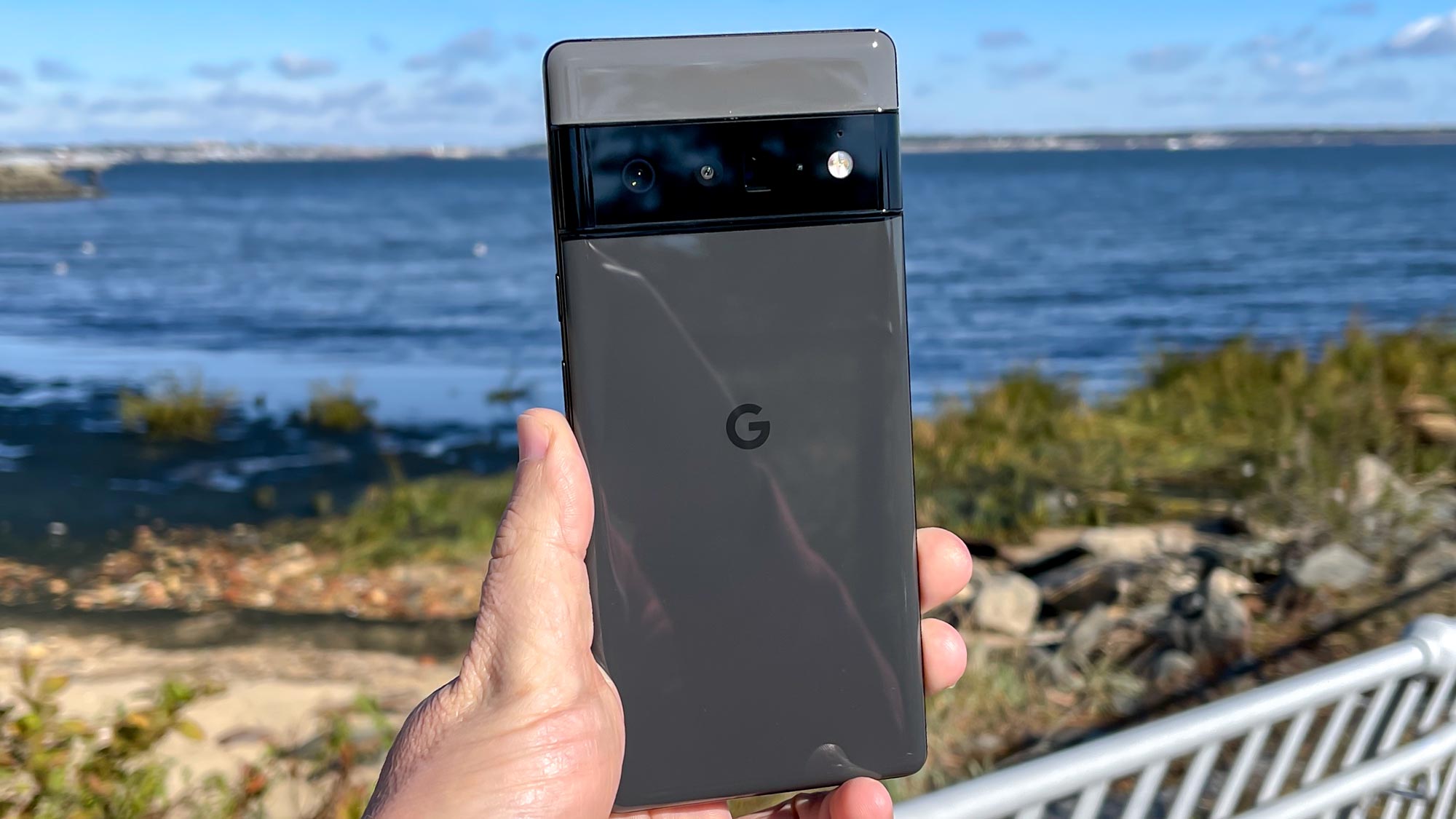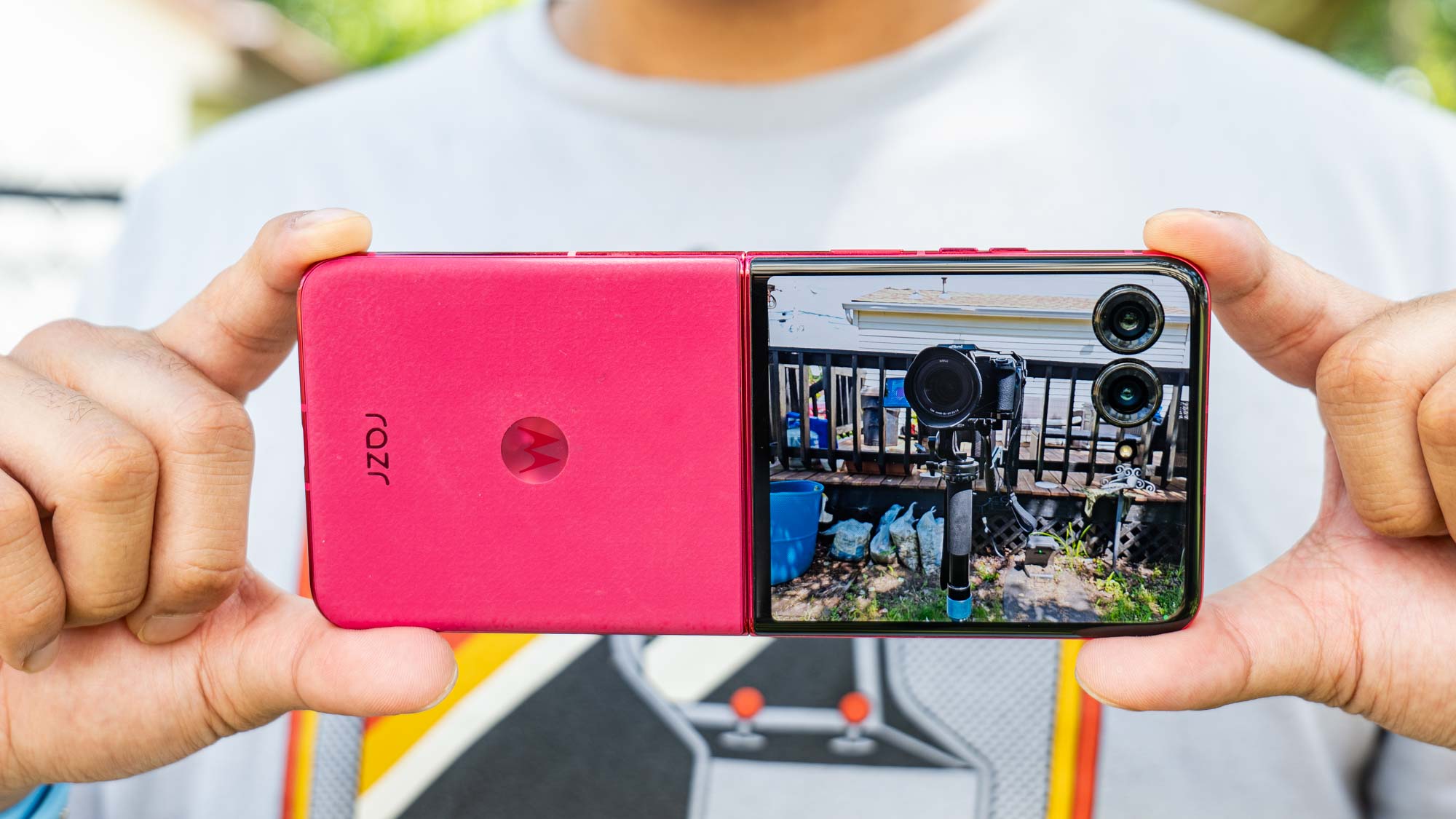The Google Pixel 6 Pro could be Samsung Galaxy S22 Ultra’s worst nightmare
The Google Pixel 6 Pro has nearly everything you want in a big-screen phone, and that's the problem

If the rumors prove true, the Samsung Galaxy S22 Ultra will debut early next year to much fanfare. Based on the leaks, we’re talking a sleek Galaxy Note-like design — complete with S Pen slot — powerful cameras and an Exynos 2200 chip with AMD RDNA 2 graphics power.
There’s just one problem: the Google Pixel 6 Pro. Google’s new flagship has practically everything you need from a big-screen phone for a fairly affordable $899 price. The Galaxy S22 Ultra will likely cost hundreds more, which could cause many to wonder if the “Ultra” premium is worth it.
- The best phones right now
- Samsung Galaxy S22: Everything you need to know
- Plus: Galaxy S22 Ultra key specs just tipped
If you take a look at the Pixel 6 Pro, Google has cut very few corners to get to its aggressive price. You get a very capable triple camera system that compromises a 50MP main sensor, 12MP ultra-wide and 48MP telephoto with 4x optical zoom and 20x Super Res zoom.
Meanwhile, a new Galaxy S22 Ultra camera leak says it will pack an improved 108MP main camera, a 12MP ultra wide and dual 10MP telephoto lenses. The Galaxy S21 Ultra already had the Pixel beat with its 100x Space Zoom, and I don’t see that changing for the S22 Ultra.
However, Samsung’s computational photography game is not as strong as Google’s. And I’m not just talking about image processing. Google has introduced new features with the Pixel 6 Pro that really flex the AI muscles of the new Tensor chip.
For example, the Pixel 6 Pro’s Motion mode can blur the background or moving objects with its Action Pan and Long Exposure features. And the Magic Eraser mode is super compelling, letting you remove photo bombers from your pics along with any other unwanted items. It’s amazing even if it’s not flawless.
To be fair, Samsung has offered special camera modes and photo editing modes of its own, but they have not been as compelling, such as Single Take. Director’s View is pretty cool though, which lets you record using the front and back cameras at the same time.
The Pixel 6 Pro compares favorably to the current Galaxy S21 Ultra in other ways. You get a 6.7-inch, 120Hz OLED display, compared to 6.8 inches and a 120Hz refresh rate for the Samsung. The S22 Ultra is tipped to offer the same size panel and same refresh rate.
As for performance, the rumored new Snapdragon 898 (U.S. models) and Exynos 2200 chip (international model) for the Galaxy S22 Ultra should be more powerful than the Tensor chip inside the Pixel 6 Pro. But the Pixel 6 Pro is plenty fast in everyday use and when playing games. Plus, the Tensor chip beat the Galaxy S21 Ultra in certain Pixel 6 benchmarks, such as our video editing test and in 3DMark, though it trailed on Geekbench.
The biggest drawback is the Pixel 6 Pro battery life. On the Tom’s Guide web surfing battery life, the new Pixel lasted less than 8 hours, compared to 11:25 for the Galaxy S21 Ultra. This is despite both phones packing 5,000 mAh batteries. So the S22 Ultra should stay ahead on endurance.
So how much more will the Galaxy S22 Ultra be really worth? The current Galaxy S21 Ultra is $1,199, which is $300 more than the Pixel 6 Pro. And I don’t anticipate that the S22 Ultra will be cheaper. It could just be that the new Pixel will be the good-enough big-screen phone.
The bottom line is that the Galaxy S22 Ultra will really have to wow to justify the delta between it and a very fierce rival.
More from Tom's Guide
- Google Pixel 6 vs Pixel 6 Pro: Biggest differences explained
- The best Black Friday deals right now
Sign up to get the BEST of Tom's Guide direct to your inbox.
Get instant access to breaking news, the hottest reviews, great deals and helpful tips.
Mark Spoonauer is the global editor in chief of Tom's Guide and has covered technology for over 20 years. In addition to overseeing the direction of Tom's Guide, Mark specializes in covering all things mobile, having reviewed dozens of smartphones and other gadgets. He has spoken at key industry events and appears regularly on TV to discuss the latest trends, including Cheddar, Fox Business and other outlets. Mark was previously editor in chief of Laptop Mag, and his work has appeared in Wired, Popular Science and Inc. Follow him on Twitter at @mspoonauer.
-
Wolfman127 I'll be getting the s22 ultra Google hasn't done enough to tempt me away from my favorite brand and I really like that the s22 ultra will have the s penReply -
Paradroid888 I very nearly went for the Pixel 6 Pro but decided to wait for the S22. My preference would be the rumoured S22 Pro which is top spec but a smaller size than the Ultra. That appeals to me, I don't like phones at the Ultra size.Reply
On the camera side, I would say that computational is just one aspect of photography, and while the Pixel photographs are technically impressive, they look quite artificial to my eyes. I couldn't really explain it but MKBHD discusses it and he thinks it is the HDR processing being too strong. With a Pixel camera it would be hard to photograph a silhouette against the sun - the Pixel would show the detail of the object instead of just the black outline as intended.. Samsung and Apple cameras take photos that look more realistic then the Pixel 6 does at the moment. Samsung also has a Pro mode where you can control shutter speed and even metering. Pixel phones don't have this.
There are also a few reviews pointing out issues with the Pixel 6 battery life. This may well be software issues that get patched soon, but again, I'd rather wait for the S22 to launch then decide. -
xues I've been in the market for a new phone as well. Currently, I have a Samsung S10, but had an LG G5 before that. I like the size of the S10 and I'm looking for a pocketable phone that isn't too big, but has the best benchmarks, security, and features. First, I almost went with the Samsung Z Flip 3, because I like the idea of it being pocketable , but decided against it due to the phone's crease, no telephoto, no samsung dex, and questionable long term reliability (e.g. glass is always stronger). Then noticed the Pixel 6 Pro and was planning to get that and I would if it were not for the optical fingerprint sensor ... really, they should ban these on phones due to them being one of the lowest forms of bio metric security. The LG G5 I felt had the best fingerprint sensor out of the phones I've owned. It was placed on the back of the phone, naturally where the index finger would be and used a capacitive fingerprint sensor, which is more secure than optical and works a lot faster. Even on the ultrasonic from the S10 I have issues with it detecting sometimes and it's not natural for it to be on the front (e.g. glass)... I mean why is it important to put it under the glass, just because you can? Also, it has issues with battery life as MKBHD pointed out, but that can be solved via OTA update. I'd take the Pixel 6 pro in a heartbeat if it as it was but with a capacitive fingerprint sensor on the back and I'd wait till they provide a software update that fixes the odd picture capturing sometimes (see MKBHD video onit) and battery life. Currently, my plan is to wait and see what the S22 offering is.Reply
Google if you are looking at this, here's the Samsung killer idea:
Start with Pixel 6 pro (I like the 12GB of RAM, CPU/GPU benchmark is OK, but could be better, call screen / image editing is a great idea, flash sizes offered are good 128GB should be the lowest)
Fix the battery consumption issue, (software, you have the mAH but you're wasting it on something )
Fix the image quality problem of odd looking photos and viewfinder not matching image (software, sensors are good)
Reduce the telemetry data and be transparent about it (maybe a Pixel only feature) ... this could help in the battery life department.
Remove under display and add capacitive fingerprint sensor on the back... Why did we ever move away from this? Now you can put any screen protector on you want and not have the security flaws of an optical sensor, it works faster, and it's not in a weird position. Even though LG is gone, they did have some good ideas time to time.
Add a desktop mode that similar to the Samsung Dex environment. Maybe call it ChromeOS desktop or Android Desktop?
Sell a USB-C dock for it and market it as someone could replace their PC with it
Have a screen size that's similar to the S10 standard but still has all the same hardware. You could have different screened models like Apple does.
Add a secure face ID method to try to get Apple users over
If you've added face ID, you could have a dual auth part for sections of the phone using both face and thumbprint... such as opening certain apps or accessing certain folders or settings/app store/purchases.
You could add YubiKey for part of that dual auth as well

